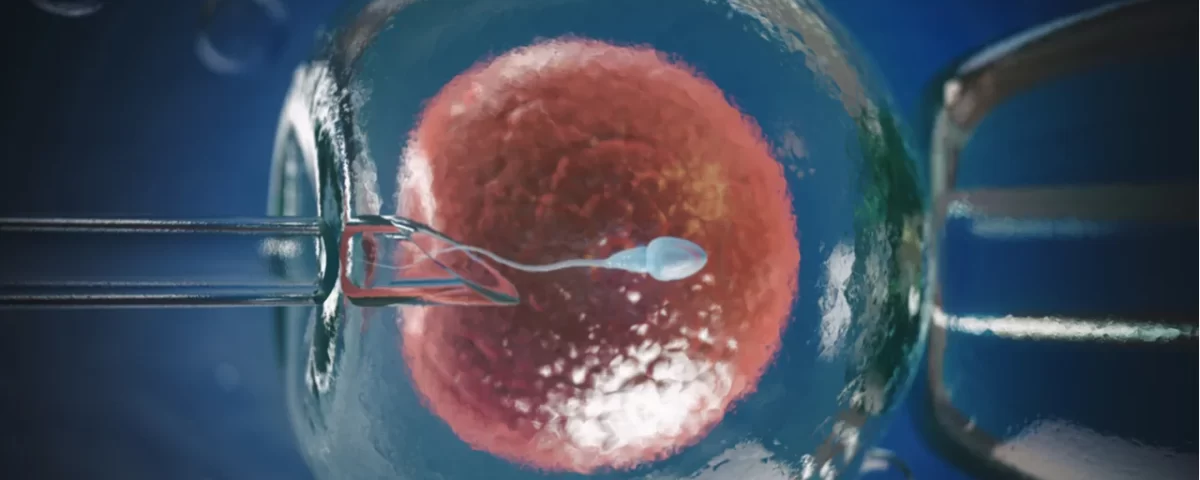What is Polycystic ovary?
Polycystic ovary syndrome (PCOS) is a hormonal disorder common among women of reproductive age. It can cause various metabolic abnormalities like high cholesterol, sugar derangement, weight gain and increased facial hair growth. Importantly, PCOS is a very common cause of infertility in women.
Normally women of reproductive age with a normal hormonal orchestra will produce one egg every month. In women with polycystic ovaries the imbalance of sex hormones prevents the normal development of eggs and ovulation does not occur, resulting in the problem of infertility.
According to American Women’s Health Association 5-10 percent of women have polycystic ovaries in the age group of 15 to 44 years.
Relationship between PCOS and infertility
Irregular menstrual cycles are the most recognisable manifestation of PCOS.
For a normal woman, length of the menstrual cycle is between 21-35 days. However, in woman with PCOS the menstrual cycles can sometimes become short or excessively prolonged to 2-3 months, sometimes even 6 months. Sometimes a patient of PCOS may not get her periods without medicines at all!
Irregular periods are indirect manifestation of sex hormone disturbances. This causes ovulation abnormalities and pregnancy can not be achieved if a woman is not ovulating.
In addition this unbalanced hormonal milieu causes the utreine lining to develop inappropriately which is not friendly for embedding of the fertilized egg (i.e difficult for baby to adjust to the uterus).
Therefore, if PCOS is not detected early and treated promptly, the risk of infertility becomes relatively high in these women.
Causes of polycystic ovaries?
Exact cause of PCOS is not known but it appears to be related to genetic factors.
If a woman has a mother or a sister with PCOS, she herself is more likely to have this problem. Other contributing factor for development of PCOS is insulin resistance. With insulin resistance the body loses the ability to convert sugar into energy and stimulates excessive androgen (male hormones) production. This excessive male hormone causes multiple eggs to start developing but no egg reaches maturity leading to formation of multiple small cysts in the ovary, hence the name polycystic.
Common symptoms of PCOS
- Irregular periods
- Weight gain
- Male distribution of hair (like hair on upper lips, beard, chest and back)
- Hair fall from scalp leading to balding of forehead
- Pimples on face, back and chest
- Dark discolouration of skin on neck or armpits
- It is important to note that every case of PCOS may not manifest all of the above features.
When to see a doctor?
- Gaining excessive weight
- Developing facial hairs
- Having acne (pimples)
- Having irregular periods
- Planning pregnancy with any of the above
Even women who do not want pregnancy but are facing any of these issues should seek medical advice to prevent or treat complications arising out of this disease.
Complications of PCOS
- Infertility
- Weight Gain
- Cancer of utreine lining in late years of life
- Diabetes
- High blood pressure
- Ischemic heart disease
- Cosmetic disfigurement leading to psychological problems
Treatment for patients who do not want pregnancy
Weight loss is the single most important intervention in the treatment of PCOS. Every woman with PCOS must strive to achieve her ideal body weight. Dyslipidemia, diabetes, high blood pressure and heart disease may be treated by physician and endocrinologist. In addition, cultivating healthy habits such as regular exercise, and consuming green vegetables and fruits and avoiding junk food brings good effect to the treatment process.
Treatment of menstrual disorder
Contraceptive pills are an excellent method of controlling irregular menstrual cycles if that is the major presenting problem. Pills having safe progestogens (with minimal androgenic effect) are specifically chosen for the treatment of this disorder.
Management of hyperandrogenic symptoms i.e. symptoms like acne, hair growth on face, baldness etc.
Increased androgens in PCOS come from defective functioning of the ovaries. By giving contraceptive pills, the ovarian function can be completely shut down which in turn reduces the androgen levels. Therefore, giving contraceptive pills containing normal female hormones goes a long way in reducing the symptoms arising from excessive male hormone levels in patients with PCOS. In addition, certain drugs work directly against the male hormone action. These are spironolactone and finasteride. These drugs may be used in addition to the contraceptive pills if hyperandrogenic symptoms are dominant.
Treatment of patients with PCOS who wish to become parents
1. Lifestyle modifications comprising of diet with low calorie content (reduced fat and high fibre) and physical activity are strongly recommended. These measures may help them to ovulate naturally. Reduction in body weight has many other beneficial effects also.
2. Ovulation inducing drugs such as clomiphene citrate or letrozole may be used to stimulate egg formation
3. Insulin sensitiser drugs like metformin and myoinositol help in restoring natural ovulation in patients who are having insulin resistance.
4. Laparoscopic ovarian drilling where a few burns are given in the ovary using an electrically activated needle was also used till a few years ago. This is not recommended much because, if not done properly, it can cause premature ovarion failure and post-operative adhesions.
5. IVF is a great help to these PCOS patients to achieve pregnancy. With IVF the success rate is also very good for these patients.








